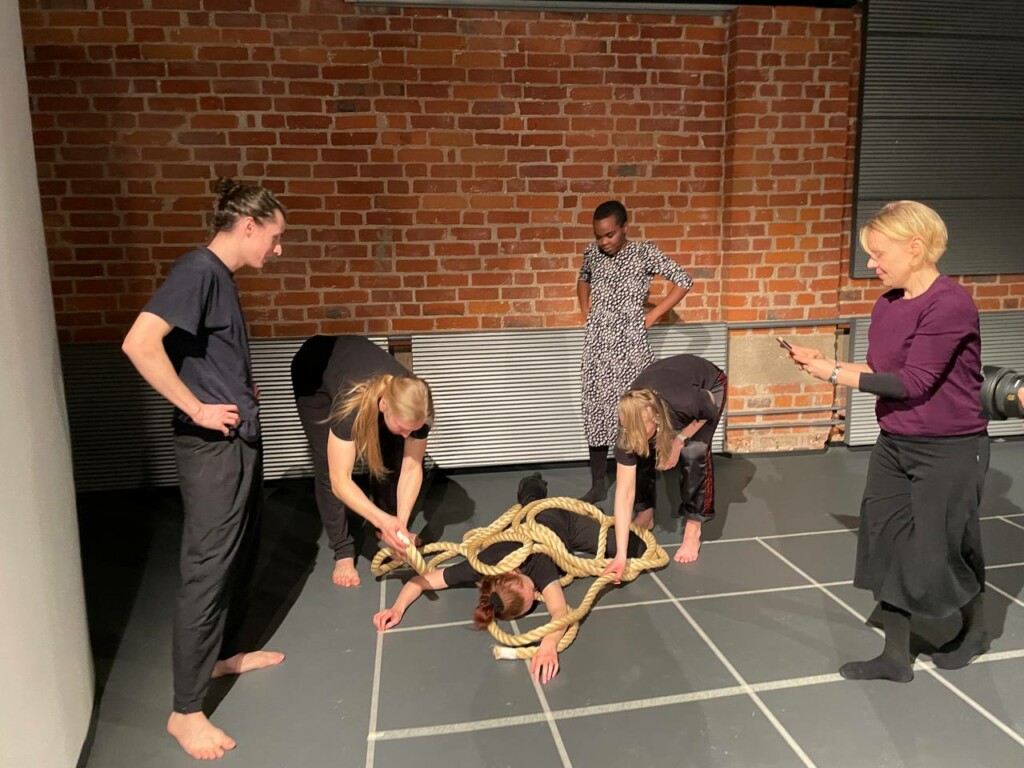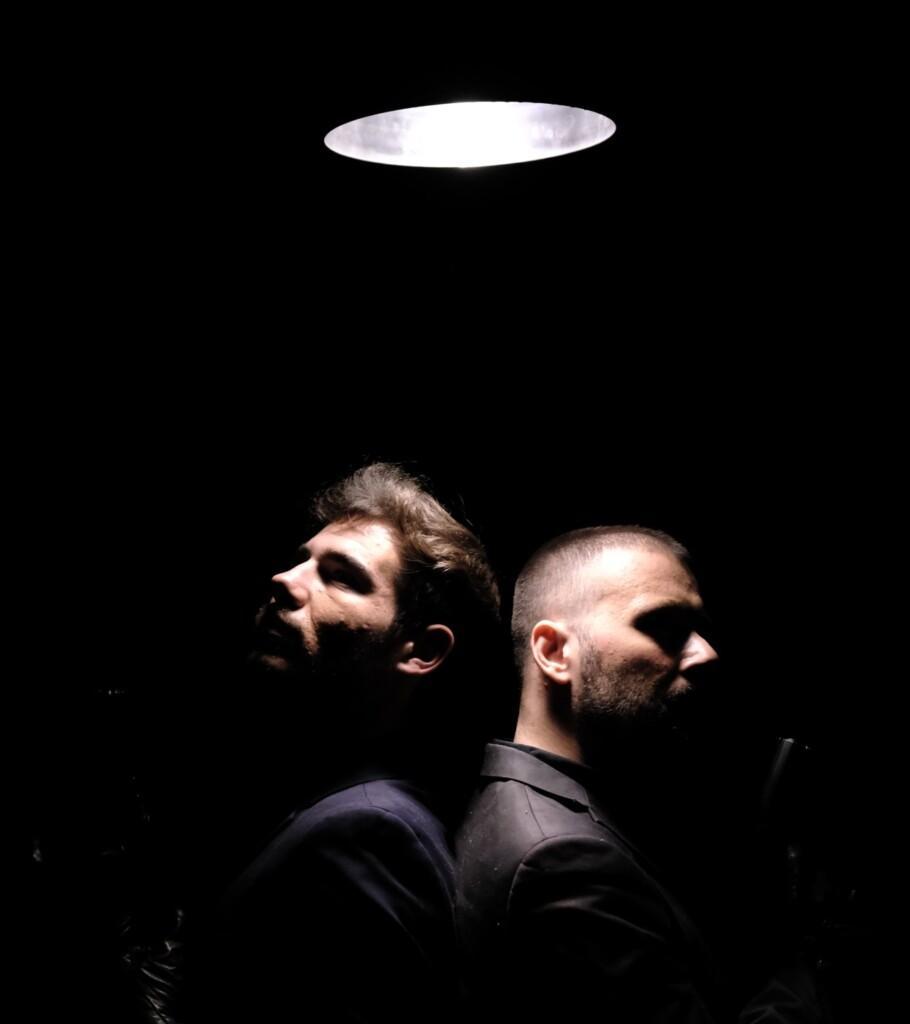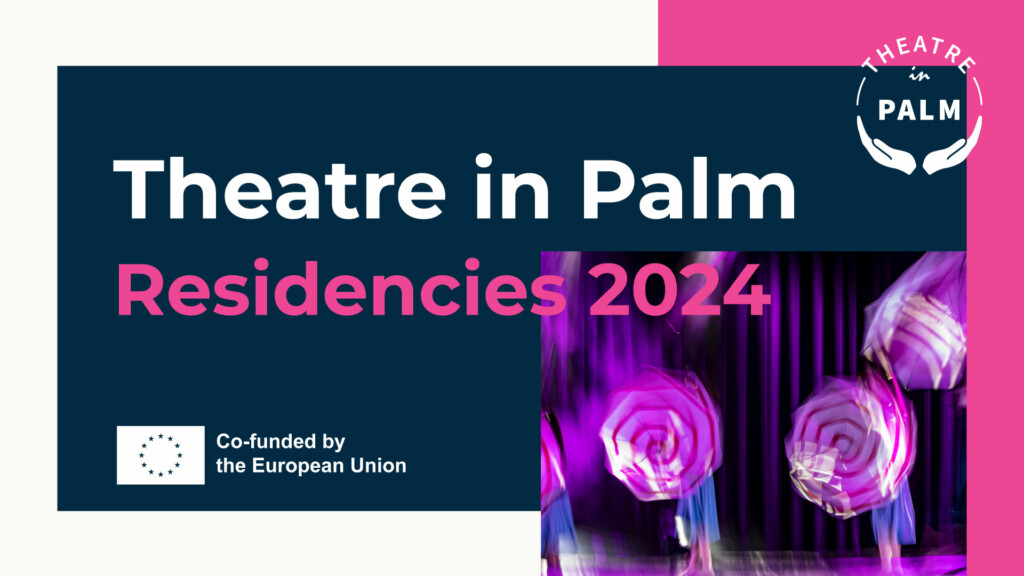Mentors: see and hear before you speak

The most important tools in an artistic mentor’s toolkit are the ability to make observations, verbalise one’s thoughts, and formulate and conceptualise the right questions and actions.
The mentor asks: What do I see and hear? In other words, what currently exists when I look at the task at hand?
The mentor observes: A given theme, five performers, a pile of texts, a bunch of objects, X hours of time.
The mentor asks: What does each performer think is the most interesting part of their material? How can we make these visible onstage?
The mentor suggests: Choose one object and sentence and create a scene that features as few words as possible.
Mentoring an artistic process means defining its framework, or boundaries, and guiding and facilitating your mentees in their work. A mentor can ask questions about this framework and sometimes even help maintain it, for example by ensuring that their mentees stay on schedule. Looking after your framework often involves a host of production-related questions: how much time do we have? Where can we work, who do we have, what equipment and supplies are available to us, and how often should we go on break?
Supporting the process with perceptive observations
It’s the mentor’s duty to remind their mentees of the importance of making artistic decisions – progress requires constant choices. The mentor can also guide their mentees in the nature and stages of the process itself. For example, they can encourage their group to quickly create a first draft or outline and use it as a starting point for refining and developing the work. The mentor’s duty is to promote the realisation of their mentees’ goals from the sidelines as a careful observer. Above all, the mentor must remember that they are not the author of the work.
When you focus on doing instead of evaluating what is being done, you can direct your energy at the right issues.
The mentorship process must take into account both the objective of the work and the emotional goal of the process. The objective of the work can be anything, for example a public performance or a presentation of someone’s work after the end of a residency. The emotional goal of the process means looking after a group’s sense of cohesion, i.e. fostering a communal spirit. This can be achieved in various ways, for example by allowing your mentees to bond together and reflect on their work. A group can focus on their emotional goal when they are allowed to verbalise their objectives and find solutions to issues that may crop up during the process. Reducing any excessive pressure and competitiveness will help promote both the objective of your work as well as your emotional goals. When you focus on doing instead of evaluating what is being done, you can direct your energy at the right issues.
Building trust through joint activities
A mentor can promote an approach that focuses on security and trust by, for example, encouraging their mentees to agree on common principles, such as not discussing any personal issues outside the group. However, we need to remember that even the best agreement cannot guarantee that the members of a group will grow to trust one another. Every individual is bound to have their own, divergent ideas and experiences of the artistic process, and these differences will only emerge once the process is underway. Many people understand trust and security in very different ways, which is why you should shift your focus from discussion to action and building trust through mutual effort.
Art typically focuses more on action than discussion.
As a mentor, I always encourage my mentees to try things instead of talking about them, as talking about what one could do and actually doing it are two completely different things. Art typically focuses more on action than discussion, which is why you should sample your options before discussing and evaluating their qualities. The most natural way to reach a decision is to experiment with different alternatives. If the participants in your group don’t know each other, you will usually encounter different perspectives and approaches during your work – and, as we all know, group work often involves compromises. A mentor can propose solutions, remind their mentees about their objective and ask what each participants feels is most essential for the work. The mentor can arrange a session where everyone can share their thoughts and propose different solutions. However, sometimes you will have no time for discussion before you act, in which case the mentor can suggest different paths or artistic solutions to their group.
Putting personal preferences aside and letting your mentees’ solutions shine
Those who mentor artistic pursuits should possess a wide-ranging understanding of art. It’s important to separate your artistic tastes or interest from the process your mentees are engaged in. A mentor can talk about their observations and, for example, highlight the opportunities they’ve witnessed that could benefit the process. Naturally, the mentor is allowed to focus on their preferences and the factors that they find interesting. However, the final decisions should always be made by their mentees.
An important tool for mentors is asking simple, concrete questions.
As a mentor, my focus is on honing in on the ideas offered by my mentees, and I will often provide suggestions for refining these further. When you are on a tight schedule, you must be able to quickly pick up on any promising scenes or performances from the materials your mentees have come up with. A demanding schedule can also easily lead a mentor into making the decisions that their group could have come up with through discussion and experimentation, were they less strapped for time. If the mentor is familiar with process and group-oriented working methods, they will know that it is possible to create something from any subject, starting point or material. Having experience with different work processes and problem-solving situations is also a great help.
An important tool for mentors is asking simple, concrete questions. For example, when preparing a performance, you could ask the following: Will the performance include a rope, a chess grid, or both? Will the entire group be on stage or visible to the audience? What sounds will the performance include? What does the performance need less and more of?
Of course, the most important thing for every mentor is to ask themselves: What working method comes most naturally to me? What is it about mentoring that inspires me?
Sometimes, simply stating your own associations and thoughts can help your mentees move forward. “For some reason, this reminds me of a waterfall. Was that your intention?”
Emerging theatre across Europe – feel the story under your skin.
Author: Minna Haapasalo, Master of Arts, Turku university of applied sciences / Arts Academy
Minna Haapasalo is a Drama Instructor, Senior Lecturer and Education Coordinator of Performing Arts in the Turku Arts Academy (Finland).



